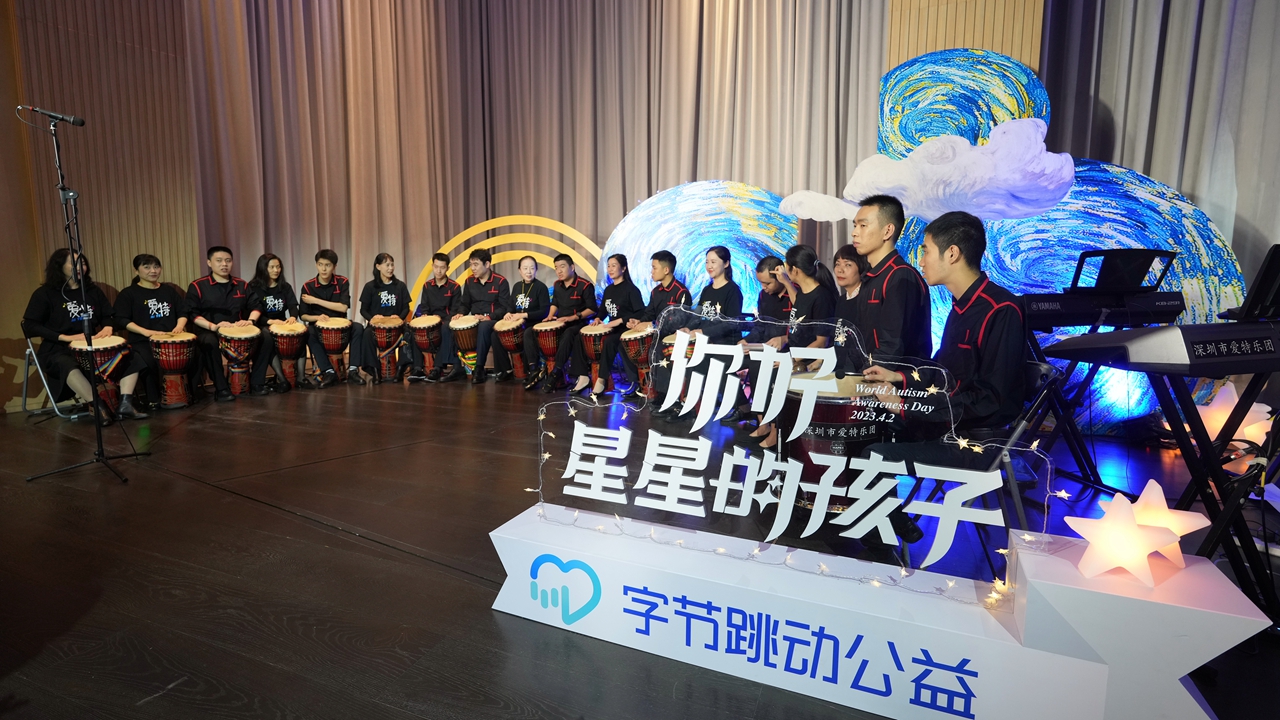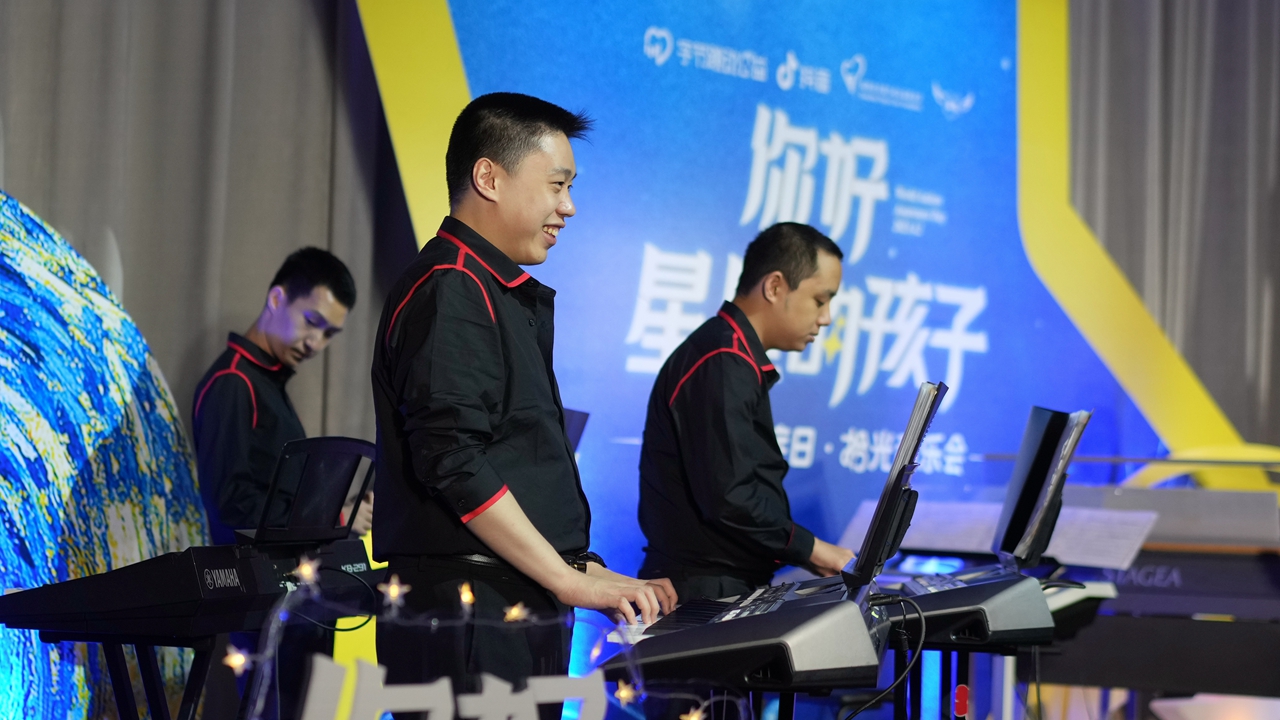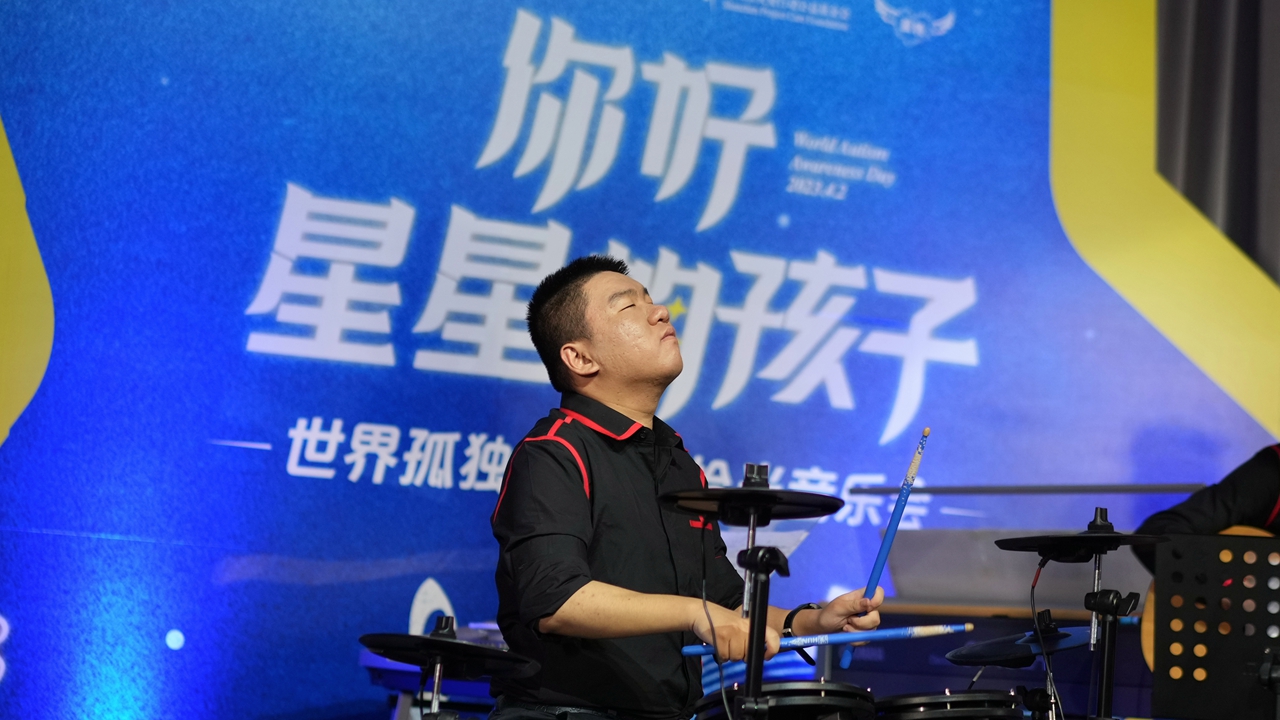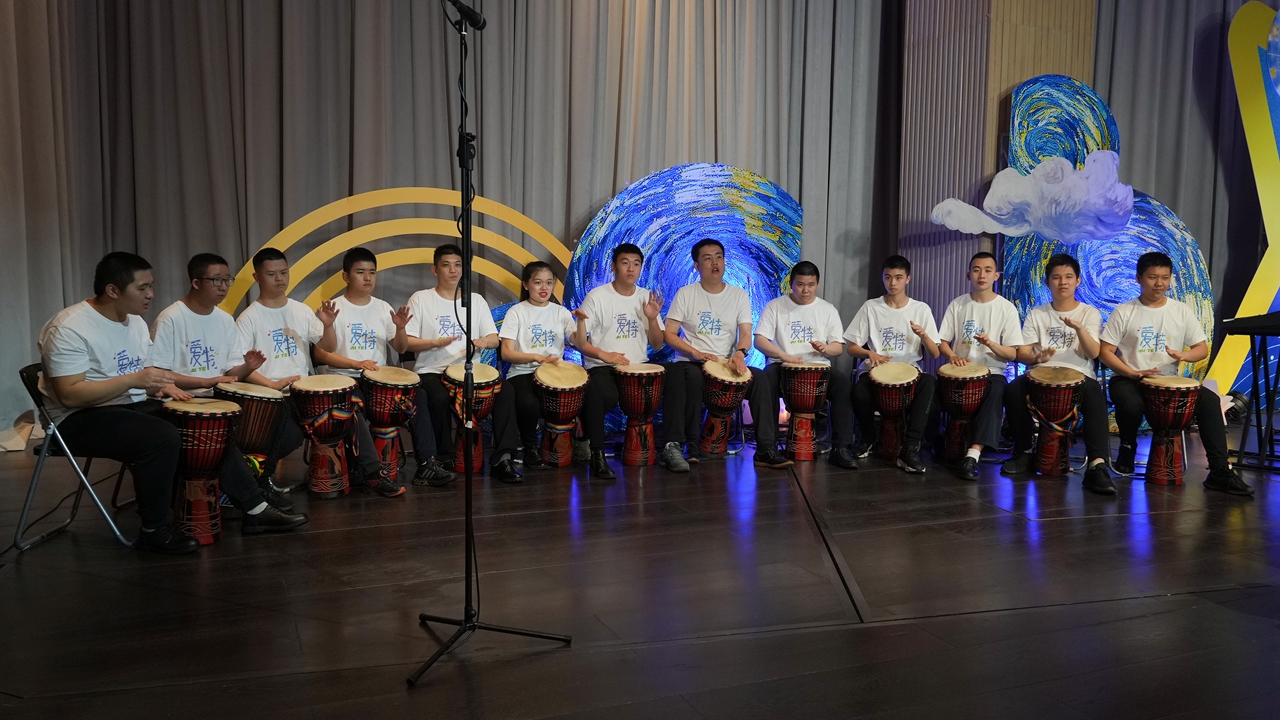Autistic youths find passion in music
Video by Liu Xudong
It is a band that not only has what a band should have, but also what ordinary bands don’t have.
The Ai Te Band, whose members can play the keyboards, bass, guitar, drum, ocarina, Chinese zither and other musical instruments, is the first music group in China composed entirely of young people with autism.

Members of the Ai Te Band play the drum at a livestreamed concert in Shenzhen last night for a nonprofit program which aims to help autistic children purse their musical dreams. Photos by Liu Xudong
The band’s name “Ai Te (爱特)” was originally taken from the English word “autism,” but it has a deeper meaning behind it — to love the special you, as the Chinese characters “ai” (爱) means love and “te” (特) means special.
The band currently has 12 formal members and has participated in over 100 performances since its establishment in Shenzhen in October 2013.

Members of the Ai Te Band play the keyboard at the charity show.
“We hope to help them grow and improve their communication skills by tapping their musical potential and helping them learn to cooperate with others,” said Sun Lili, the band’s founder.
Sun’s son Beibei, 39, was diagnosed with autism at the age of 5. Although it was a devastating blow for the family, Beibei’s parents did not give up and tried to make Beibei learn musical instruments, all of which ended in failure.

A band member reacts while playing the drum.
A surprise came when Beibei was 20 and learned to play the keyboard. After practicing the instrument for five years, he passed the grade 10 piano exam for amateurs and even got a part-time job playing the piano in a hotel lobby.
One person can walk faster, but a group of people can walk farther. By forming a band, autistic youngsters can learn, train, and perform together, while parents can support each other in a group.
Most importantly, the band’s public exposure can help raise more awareness on people with autism and make society see these people have great potential.
According to Sun, the road was not smooth for the band all the way. The band had no funding at its early stage so it mainly relied on the sales of Beibei’s paintings and some charitable donations as funding.

The Ai Te Band performs at the livestream concert.
They didn’t have a venue to practice, so they took turns rehearsing at the homes of different band members. In addition, they didn’t have a teacher and Sun reached out to Beibei’s second piano teacher, Chen Huiling, who voluntarily gave them lectures. In 2014, with the help from various sectors of society, the band has a fixed venue to rehearse and learn.
“They enjoy performing a lot, and each performance is a happy experience for them. It also encourages them to work harder, because after each performance, the audience would give them a warm round of applause that greatly improves their self-confidence,” Sun said.
“When Hanhan was young, he was not very good at expressing his emotions and was very quiet. But now, he is more outgoing. He likes to smile and he is willing to communicate with others. In fact, the changes are significant,” said Hanhan’s mother, who preferred to be identified only be her surname Lin.
Hanhan, 23, has joined the band from the very beginning. He mainly plays the keyboard but is now learning guitar. “He is very fond of his bandmates and he likes the band’s activities very much,” Lin said.
“The band has a vision, that is, to enable these youngsters to find jobs in the band. I hope that Hanhan can work for the band and find pleasure in whatever he does,” Lin said, sharing her expectations for Hanhan.
In order enable music-loving autistic children to receive music training, the band has used the donations raised over the years to organize free music training courses for autistic and special needs people in the city since 2014.
The band put on an amazing, livestreamed concert in Shenzhen last night for a nonprofit program which aims to help autistic children purse their musical dreams.
According to statistics, the prevalence of autism among school-age children in China is 0.7%, with about one case in every 142 children, 90% of whom are from primary school students.